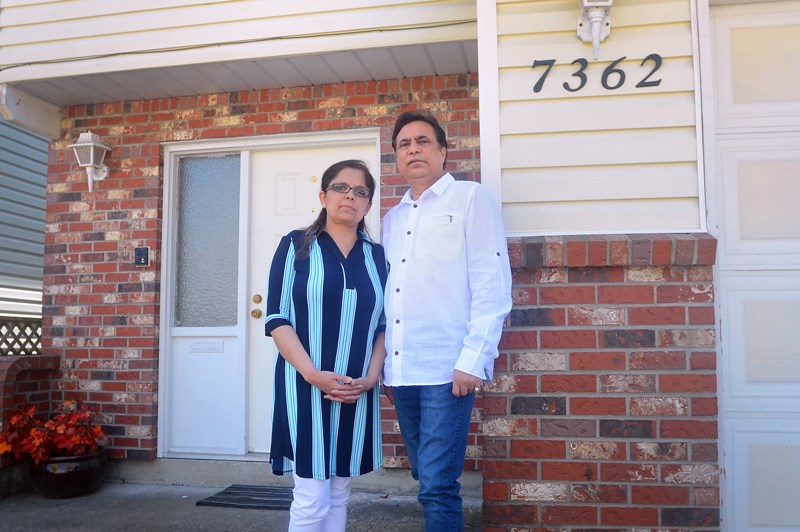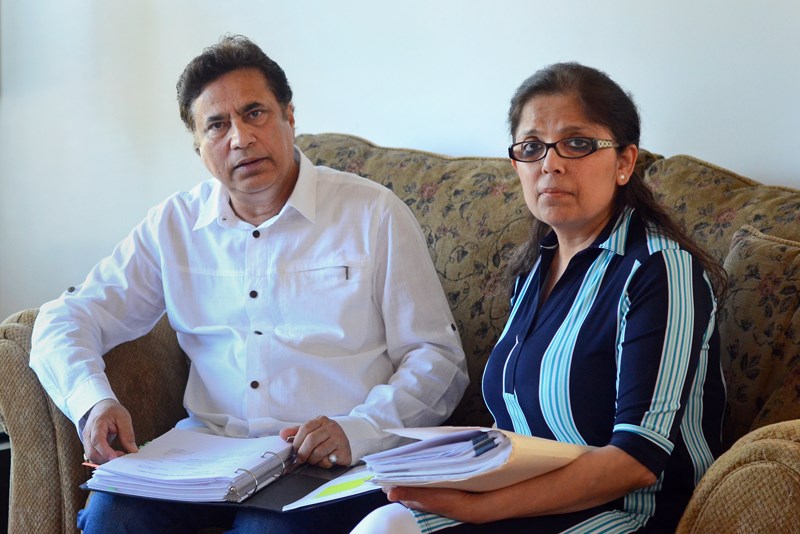A self-represented Burnaby man whose application to cancel an eviction notice was denied by the Residential Tenancy Branch has won an appeal in B.C. Supreme Court.
Deepak Suri got a two-month eviction notice from his landlord, Swarn Vahra, on Dec. 29, 2018, saying Vahra’s daughter wanted to move into the Edmonds-area home – the top floor of a house at 7362 11th Ave.
Suri, however, didn’t believe Vahra was issuing the notice in good faith or that his landlord’s daughter really wanted to move into the suite.
He pointed to a meeting Vahra had had with a real estate agent the previous summer to assess the value of the property.

He applied to the Residential Tenancy Branch to have the eviction notice cancelled, but his application was denied.
It isn’t the first time Suri has had to fight off eviction from Vahra.
In June 2018, his landlord had served him a 10-day notice for allegedly failing to pay $10,050 in rent.
The RTB cancelled that notice after a hearing.
“I presented all the documents of the cheques, two year’s documents, details that this was all paid,” Suri told the NOW.
Suri, 60, and his wife, Alka, have lived in the 11th Street house for nine years.
Because of injuries from a car accident last year, Suri said he and his wife are currently on income assistance while Suri retrains to become an immigration consultant at CDI College.
With their low income and no reference from their now-estranged landlord, the couple is afraid they won’t be able to find housing.
“You think during this dispute I did not try?” Suri said.
Unfair
So, when the most recent eviction notice was upheld, Suri filed for a judicial review, arguing in front of a B.C. Supreme Court judge that he hadn’t been given a fair hearing by the RTB arbitrator.
He said the arbitrator had allowed Vahra’s son-in-law to translate for Vahra despite the son-in-law not being a qualified interpreter and despite objections from Suri – a Punjabi speaker – that the translation was inaccurate and biased.
He further argued his landlord’s evidence for the RTB hearing had been disorganized, confusing and incomplete; and that Suri’s only witness, his wife, had not been called to testify.
One piece of evidence that Vahra didn’t disclose to Suri but produced for the RTB was an excerpt of his daughter, Parmdeep Vahra’s diary purporting to show the days she had booked off work in order to move into the suite occupied by Suri and his wife.
(Vahra said he hadn’t disclosed the diary entry to Suri because he was concerned about his daughter’s privacy.)
B.C. Supreme Court Justice Palbinder Kaur Shergill, however, agreed the hearing had been unfair to Suri.
She said the arbitrator had been wrong to rely on Vahra’s son-in-law’s translation from Punjabi to English.
“Given that Mr. Vahra’s credibility was important to the question of good faith, procedural fairness mandated that the Arbitrator address Mr. Suri’s legitimate concerns, to ensure that the person interpreting for Mr. Vahra could do so accurately and impartially.”
Shergill also agreed Vahra’s failure to disclose the excerpt of his daughter’s diary to Suri before the hearing had been unfair.
“Parmdeep Vahra’s evidence that she had taken time off work to move was accepted by the decision-maker and formed part of the analysis of the landlord’s good-faith intentions,” Shergill said. “Fairness dictates that documentary evidence used to buffer Parmdeep’s credibility should have been disclosed to the petitioner so that he had a full opportunity to respond to it.”
Shergill set aside both the RTB decision and the eviction notice and awarded costs to Suri.
It’s not the first time Suri has successfully represented himself in front of a B.C. Supreme Court judge.
In 2008, he was awarded $50,000 in damages in a defamation suit against Radio India, a radio station he was once a part-owner of.



